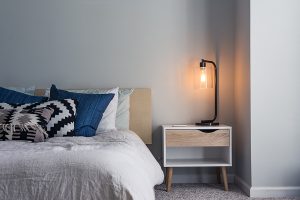By Denise Rejec
“So, I’m sitting comfortably on the sofa reading a book, when suddenly I’m in the dark! Just this time, it’s not a power cut – the light bulb of my reading lamp has given up. What should I do… Should I call my landlord?”

As a renter, you’ve probably had a few dilemmas as to when to call your landlord, and you might have encountered the same light-bulb situation as mentioned above. In such situations, you could refer to your lease agreement that should stipulate what is covered by your landlord and what is borne by the tenant. This is further explained in the interesting post outlining the rental procedure. But some things might not be so black and white.
Let’s get to answering the burning question: When should you call your landlord?
VITAL AND COMPLEX REPAIRS
You should keep your landlord in the loop if:
- Any appliances malfunction or stop working
- The water heater leaks rusty water
- The air conditioner quits on you (provided you haven’t forgotten how to use the remote control or you’ve already checked that the wall switch connected to it is on)
- A toilet or drain gets blocked
- You happen to face the dreaded circumstances of a plumber’s shoddy work such as a wet patch in the wall caused by a leaking pipe!
FLOOD
It doesn’t happen very often, but let’s say the washing machine or dishwasher goes faulty, resulting in a flood. Your landlord won’t be happy with the news of course. Flooding causes great damage to parquet and laminate flooring, and even in the case of the more common tiled floors, water can seep through the grouting and cause long-term mold and humidity problems. So it’s imperative that your landlord is informed sooner rather than later.
MOLD
It’s hard to ignore the fact that it gets very humid in Malta, especially with all the complaints you hear about this from locals and foreigners alike. Consequentially, with this weather element being as it is, some lease agreements might include a waiver declaring the potential for mold. This almost invisible fungus is usually found in the form of spots on doors, cupboards, and the more visible whitish patches on clothing that hasn’t been left to air before being put back in the wardrobe. You needn’t bring such finds to your landlord’s attention. However, a damp wall in the basement turning into a fungus garden is a different and urgent matter altogether!
INFESTATION
It is your right to live in a place that is habitable, so if your rental property becomes invaded by hordes of cockroaches or rodents, your landlord must address this infestation in a timely manner.
BREAK-IN
In the case of a break-in, it is the norm that the owner will cover damages made to any apertures during the incident. But the landlord is not responsible for stolen personal belongings and items that aren’t listed in the inventory attached to the lease agreement.
FIRE
In Malta, one usually hears of havoc caused by fireworks factories, but in the rare case of a fire at your rental home, a call to the fire department should be followed by one to your landlord.
We hope to have enlightened you with the sort of cases your landlord would be ‘happy’ or perhaps rather unhappy to hear about. Don’t call them to come change a light bulb or fuse, tighten a loose bolt, oil a squeaky hinge, or when spots from condensation from hot food show up on the kitchen cupboards or the lamp above the dinner table. Even if you have a heated argument with your neighbour, your landlord needn’t know (unless the neighbour informs them first). Remember: Be in touch when there’s a valid need and try to call at a decent hour. Last but not least: Good communication is key.
